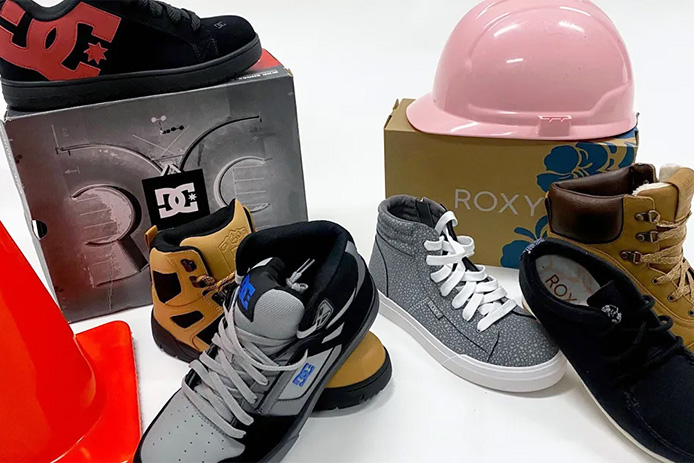How Warson Brands Became a Go-To Licensing Partner for Safety Footwear

One deal can change the course of a business. That was the case for Warson Brands in 2021, when Authentic Brands Group announced it would acquire Reebok from Adidas.
Warson Brands specializes in manufacturing occupational and military shoes and boots, and for more than a dozen years, the St. Louis-based company has been Reebok’s licensing partner for safety footwear. When Authentic picked up the Reebok business, it decided to maintain the contract.
“That was one of the best things that happened to us because Reebok ended up in the right place,” said Jim Maritz, chief executive officer of Warson. “Authentic is very knowledgeable in how to deal with licenses and bringing brands to the market and developing their potential. For us, it was a great outcome.”
And that was just the beginning.
Last year, Authentic coincidentally purchased another of Warson’s longtime license partners: Rockport. It also has tapped the safety boot expert to produce footwear for other brands in its stable, including Frye and Volcom — as well as DC Shoes and Roxy, which it bought last year through a deal with Boardriders.
“Warson is a leader in the occupational footwear space who brings an expertise in innovation
and function,” David Brooks, executive vice president at Authentic, said is a statement in November. “Together with Authentic’s proven track record of brand development, [we can] prepare each brand for success in this growing category.”
Within three years, Warson’s portfolio has nearly doubled. Aside from its work with Authentic, the company also owns the Iron Age brand, which it acquired roughly 20 years ago, and it produces Florsheim safety shoes under license with Weyco Group.
Maritz said the company’s approach to licensing is simple. “Follow the brand, look like the brand, be the brand,” he said. “It’s not our intention to create a new image or direction.”
Company leaders said that applies to the product, packaging, marketing and everything in between. However, not everyone has trusted that mantra at first, said John Duvic, vice president of product development. He recalled that in the early days of the Reebok partnership, their product teams were initially reluctant to divulge everything. “We just needed to make them feel comfortable that we’re going to respect the brand and present it to our customers in the same way they present it to their customers,” Duvic said.
And one of the trickiest parts of the licensing equation, added Brent Jennings, vice president of marketing, is ensuring there is no confusion for consumers between a brand’s core footwear offerings and the work footwear.
“A lot of times, our product does live side by side on e-commerce sites or Google Shopping, and they look very similar. So we try to be very clear in how we name and label things,” Jennings said.
For Warson, its growth comes amid a sea-change in the work footwear market, as younger consumers seek out more athletic safety shoe options — and they are more brand conscious than ever before. Maritz also noted that, after decades of sameness in work boots, the new buzzword is “newness.”
“You’re not going to survive if you keep relying on what you had last year,” he said. “The younger consumer, they’re looking for brands that are different. And for many of them, their employers provide a stipend for new shoes each year. So every year, they want something new.”
To that end, Warson is bringing something new to the market this season.
DC Shoes and Roxy were added to its stable in November 2023 and present unique opportunities in the marketplace, especially Roxy, which is a women’s-only brand.
“The message you hear many times in the occupational market from female users is, ‘What do you have that was built for me?’” said Maritz. “All of the Roxy footwear that we bring to market will be made for woman.”
Jennings noted that while there are some women’s-only work brands on the market, most offer traditional leather products that carry premium price points. Roxy, meanwhile, is looking to fill a need among entry-level women in the service industry, as well as those working in light-industrial, warehousing and light manufacturing.
Its initial offering will consist of casual soft-toe sneakers that are ASTM-certified as slip-resistant.
“That’s a category of footwear that’s very, very price competitive,” said Duvic. “We’re going to take a much tighter margin approach to it, but we’re going to go after that business.”
With both DC Shoes and Roxy, Maritz said the company will capitalize on their heritage and the reigning consumer trend around nostalgia. “These brands all resonate, not only with the younger folks, but the folks who were younger one at one point in time,” he said.
The debut collections hit the market this spring and retail for $90 to $125.
